Fears of trade war with China intensify over beef ban
Fears of an escalating trade war with China have intensified, putting thousands of Queensland jobs at risk, after Beijing blocked imports from three major Sunshine State abattoirs as part of its Australia-wide crackdown.
QLD News
Don't miss out on the headlines from QLD News. Followed categories will be added to My News.
FEARS of an escalating trade war with China heightened yesterday as Beijing blocked imports from four major Australian abattoirs just weeks after threatening economic boycotts.
The timing of the suspension just days after China signalled it would slap a crippling 80 per cent tariff on Australian barley rattled industry insiders.
Analysis: China beef ban a bitter blow to vital industry
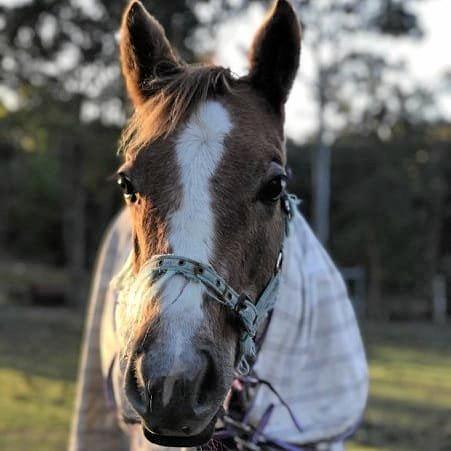
China steers away from wet markets towards supermarkets
But the Federal Government and Australian Meat Industry Council were quick to downplay talk of a trade war, pointing to similar beef export suspensions in 2015 and 2017 that were resolved within months.
The Chinese crack down includes three major Queensland meatworks that employ thousands of workers.
Industry insiders estimate the four meatworks – JBS’s Dinmore abattoir, near Ipswich, and Beef City processing facility near Toowoomba; Chinese-owned Kilcoy Global Foods; and Northern Cooperative Meat Co’s Casino abattoir in northern NSW – process up to 35 per cent of Australia’s $2.7 billion exports to China.
China is Australia’s largest international beef customer, taking about a third of all exports by weight.
Queensland exported $1.3 billion worth of beef to China in 2019.
The Chinese Government failed to provide any notification before presenting the suspension documents to the Australia Government late on Monday, citing highly technical labelling and certification breaches recorded last year.
Chinese customs and border authorities are some of the strictest in the world operating with zero tolerance for breaches on labelling and documentation, a highly manual process prone to errors.
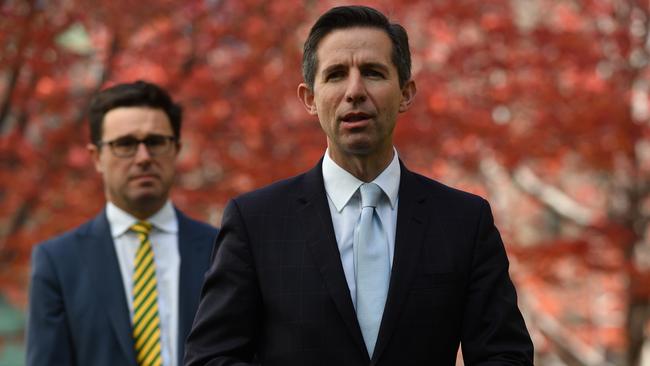
Beijing has recently been ramping up the pressure on the Australian Government to backdown from a push for a global inquiry into the origins of the coronavirus pandemic.
Last month, Chinese Ambassador Cheng Jingye warned the Morrison Government’s pursuit of an inquiry was “dangerous” and threatened Chinese consumers could boycott major Australian agricultural exports such as beef and wine.
The trade disputes have also flared just days after The Sunday Mail revealed maverick federal Member for Dawson George Christensen would sensationally call Mr Cheng to give evidence at a politically charged federal inquiry.
The move opened a fresh diplomatic checkpoint as Mr Christensen demanded China explain why it had “economically threatened” Australia before and after the coronavirus outbreak.
Trade Minister Simon Birmingham said the government was disappointed China had not given any notification about the “minor technical breaches” before the suspension.
“This is an understandable concern for Australian agriculture,” he said.
“Thousands of jobs relate to these meat processing facilities. Many more farmers rely upon them in terms of selling cattle into those facilities, and it is a very important market for Australia. But I would emphasise, there are many other meat processing facilities that will continue under their approved permits to send product to China as they do, indeed, around the rest of the world.”
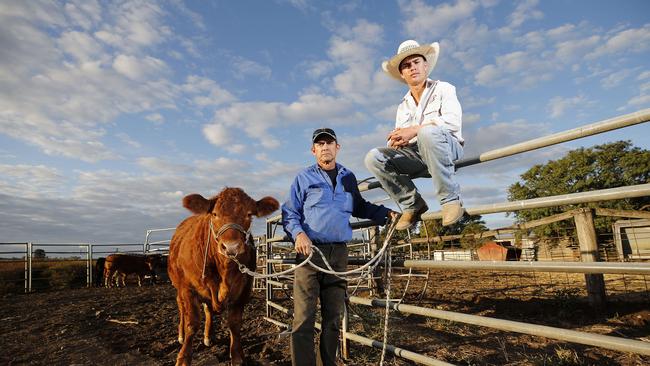
Australian Meat Industry Council chief executive Patrick Hutchinson said the suspension was “regrettable” but the industry had “dealt with these issues before”.
“I think these are technical matters that both China and Australia want to work on very quickly but it is something we must remember that China, through their own (Customs Department) is working through,” he said.
“This is not like it’s a political law or anything else like that, this is from their own technical group so it’s very technical.”
Mr Hutchinson said China took minor labelling inconsistencies “very seriously” but all the issues raised in the current complaint occurred last year.
“We didn’t see any impact when things were suspended for three months back in 2017 so I don’t see a large issue with regards to prices at the moment,” he said.
The suspension applied to any meat produced from yesterday so it’s believed product already on the water or waiting to be shipped would be allowed to enter China.
AgForce cattle president Will Wilson said it was a labelling issue and China was within its rights to request the issue was fixed
“It’s a 30-day ban so it’s not a game changer, it’s certainly a hiccup in the road, but it’s not major.”
Mr Wilson said beef was in short supply due to the drought so the domestic market had some capacity to absorb extra supply if abattoirs could not export to China.
“I can’t see it having a big negative effect on the price to consumers,” he said.
JBS, which is one of the world’s largest beef producers, operates the Dinmore plant, which is known as the largest in the Southern Hemisphere, employing 2000 staff and processing up to 3,400 cattle a day.
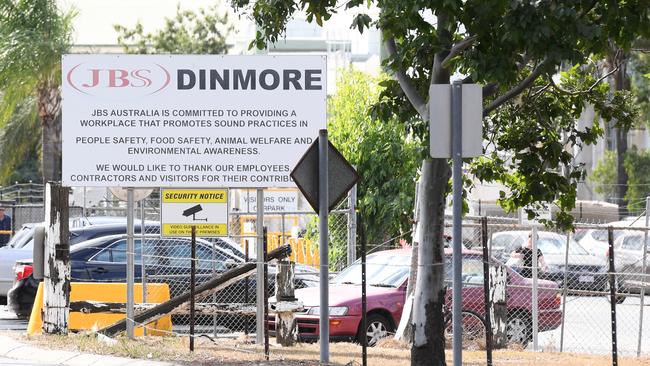
A spokesman said the federal government informed the company on Monday that China had suspended shipping of all product produced after May 12.
“JBS Australia is firstly working with (the Agriculture Department) to understand the technical issues that China has raised and secondly, based on understanding the issues we will be responding through corrective actions with (the department),” the spokesman said.
The Chinese-owned Kilcoy Global Foods abattoir, which was recently upgraded and employs about 1200 staff and has capacity to kill up to 1700 cattle a day, did not respond to a request for comment.
Government sources said the government was treating the moves on barley and beef in the past days on their merits but if more commodities faced bans it could signal a move towards a trade war.
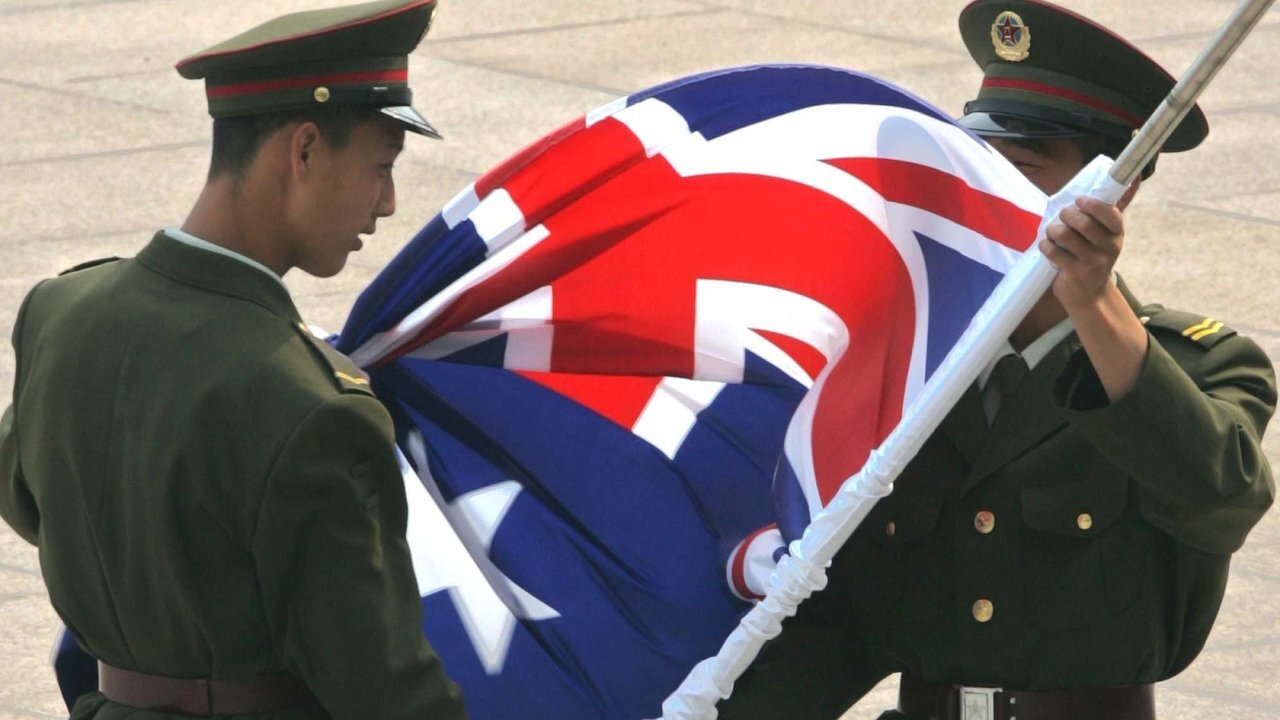
Originally published as Fears of trade war with China intensify over beef ban
